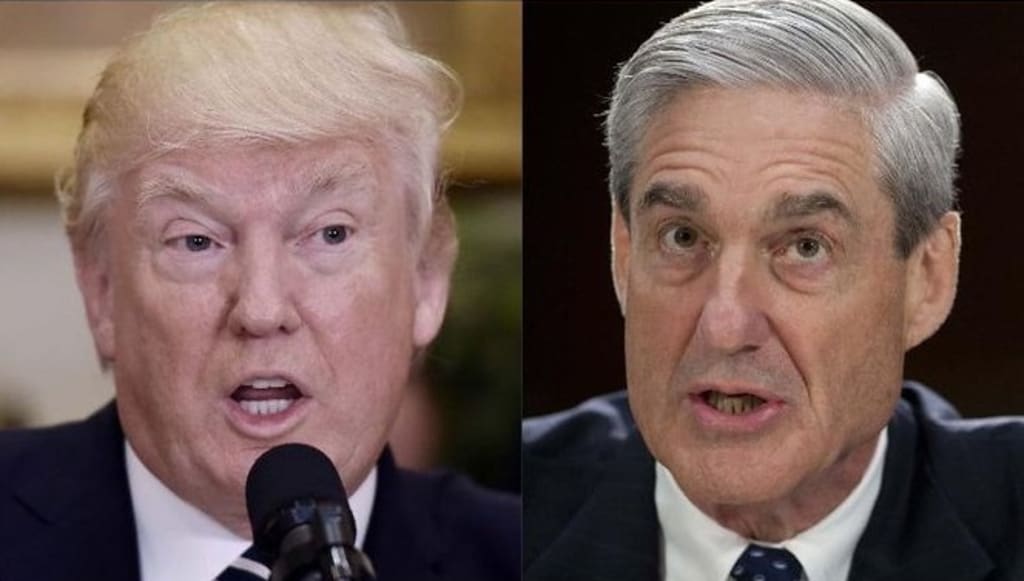Is Robert Mueller an Antique? The Role of Facts in a Post-Truth Era
The Role of Facts in a Post-Truth Era

Is Robert Mueller an Antique? The Role of Facts in a Post-Truth Era
In an era marked by the rise of misinformation, fake news, and alternative facts, the value of objective truth and factual evidence has come under scrutiny. This phenomenon begs the question: Is Robert Mueller, the former Special Counsel who conducted the investigation into Russian interference in the 2016 U.S. presidential election, an antique figure in our post-truth society? Examining the role of facts in this new era is crucial to understanding the challenges we face in upholding the truth and maintaining a well-informed public.
Robert Mueller's investigation was a landmark event in American politics, as it sought to uncover the truth surrounding Russian interference and possible collusion with the Trump campaign. Mueller and his team meticulously gathered evidence, interviewed witnesses, and conducted a thorough investigation, producing a detailed report that outlined their findings. The report, grounded in facts and supported by evidence, became a touchstone for truth-seeking in an increasingly polarized environment.
However, the reception of Mueller's findings and the public's response highlighted the deep divisions and skepticism that exist regarding facts and truth. In the face of conflicting narratives and partisan interpretations, the role of facts in shaping public opinion becomes increasingly tenuous. This is particularly evident in the post-truth era, where emotional appeals and personal beliefs often carry more weight than empirical evidence.
One factor contributing to this phenomenon is the erosion of trust in traditional institutions and the media. Skepticism towards established sources of information has fueled the rise of alternative narratives and the proliferation of misinformation. In this environment, the perception of truth becomes subjective, as individuals seek out information that aligns with their existing beliefs or political leanings. The notion of objective facts can be dismissed as antiquated, replaced by a subjective relativism where multiple versions of reality coexist.
Confirmation bias and cognitive dissonance further complicate the role of facts in shaping public opinion. Confirmation bias refers to the tendency to seek out and interpret information in a way that confirms pre-existing beliefs. In a post-truth era, individuals are more likely to selectively engage with sources that validate their own perspectives, reinforcing their existing biases and dismissing contradictory facts. Cognitive dissonance, the discomfort felt when holding conflicting beliefs or encountering contradictory information, can lead individuals to reject facts that challenge their worldview in favor of maintaining internal consistency.
Moreover, the speed and reach of information dissemination through social media platforms have amplified the challenges of navigating the post-truth landscape. The viral nature of false or misleading information can quickly overshadow the efforts of fact-checkers and perpetuate misinformation. The algorithms that govern social media feeds often reinforce echo chambers, creating filter bubbles where individuals are exposed to content that aligns with their existing beliefs, further entrenching the post-truth phenomenon.
So, where does this leave figures like Robert Mueller and the role of facts in our society? While it is true that the post-truth era presents formidable challenges, it does not render the pursuit of truth obsolete. The existence of objective facts and evidence remains crucial for informed decision-making, democratic processes, and a well-functioning society. However, it requires a multifaceted approach to address the underlying issues and rebuild trust in the value of facts.
Education and media literacy play a fundamental role in equipping individuals with the critical thinking skills necessary to evaluate information, distinguish between reliable sources and misinformation, and recognize their own cognitive biases. Promoting a culture of skepticism that encourages questioning, verification, and seeking multiple perspectives can help mitigate the influence of confirmation bias.
Media organizations and journalists also have a responsibility to uphold journalistic integrity, adhere to rigorous fact-checking standards, and provide transparent and accurate reporting. Fact-checking initiatives can play a crucial role in debunking misinformation and holding public figures accountable. However, it is important to recognize that the impact of fact-checking alone may be limited, as it often fails to reach those who are already entrenched in their beliefs or who are susceptible to confirmation bias.
Addressing the post-truth phenomenon requires broader societal changes as well. Encouraging open dialogue, fostering empathy, and promoting respectful engagement across ideological divides can create an environment where differing viewpoints can be heard and evaluated constructively. Building bridges of understanding and seeking common ground, even in the face of differing beliefs, can help counteract the divisive effects of the post-truth era.
Conclusion:
In conclusion, while the role of facts may face challenges in a post-truth era, they remain essential for a well-informed society and the functioning of democratic processes. Figures like Robert Mueller, who diligently pursue the truth through evidence-based investigations, play a vital role in upholding the integrity of factual information. However, addressing the erosion of trust, mitigating cognitive biases, promoting media literacy, and fostering open dialogue are necessary steps in navigating the complexities of a society where subjective narratives often overshadow objective facts. Only through a collective effort can we strive to maintain the relevance and importance of facts in shaping our understanding of the world.
About the Creator
News Bucks
Global News Reporter
Enjoyed the story? Support the Creator.
Subscribe for free to receive all their stories in your feed. You could also pledge your support or give them a one-off tip, letting them know you appreciate their work.






Comments
There are no comments for this story
Be the first to respond and start the conversation.